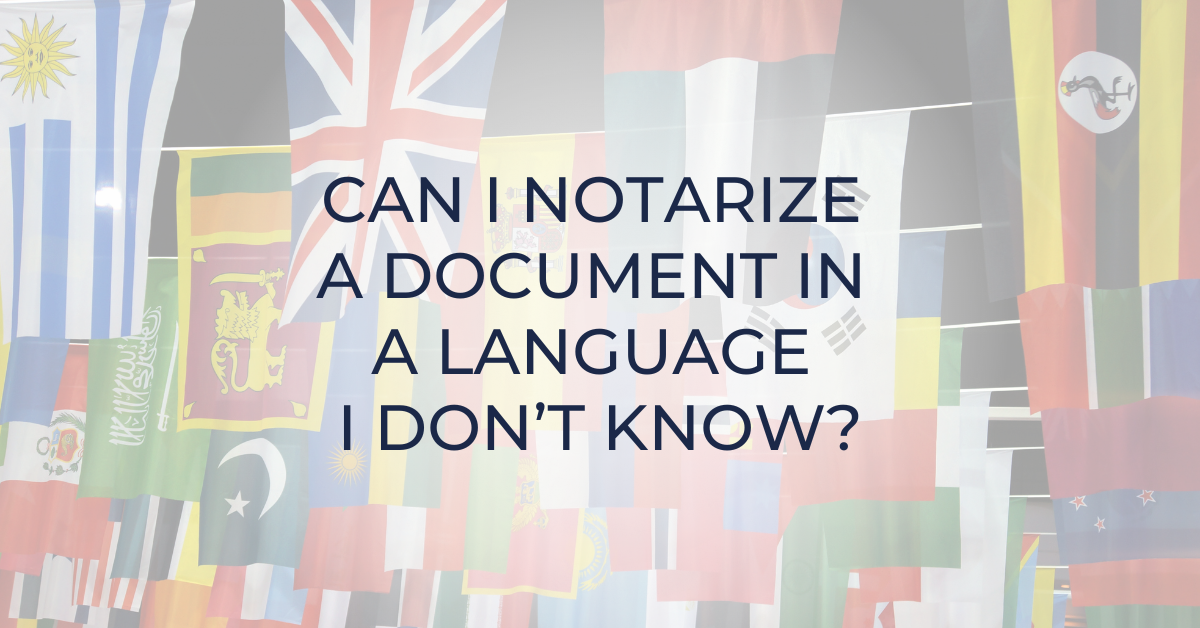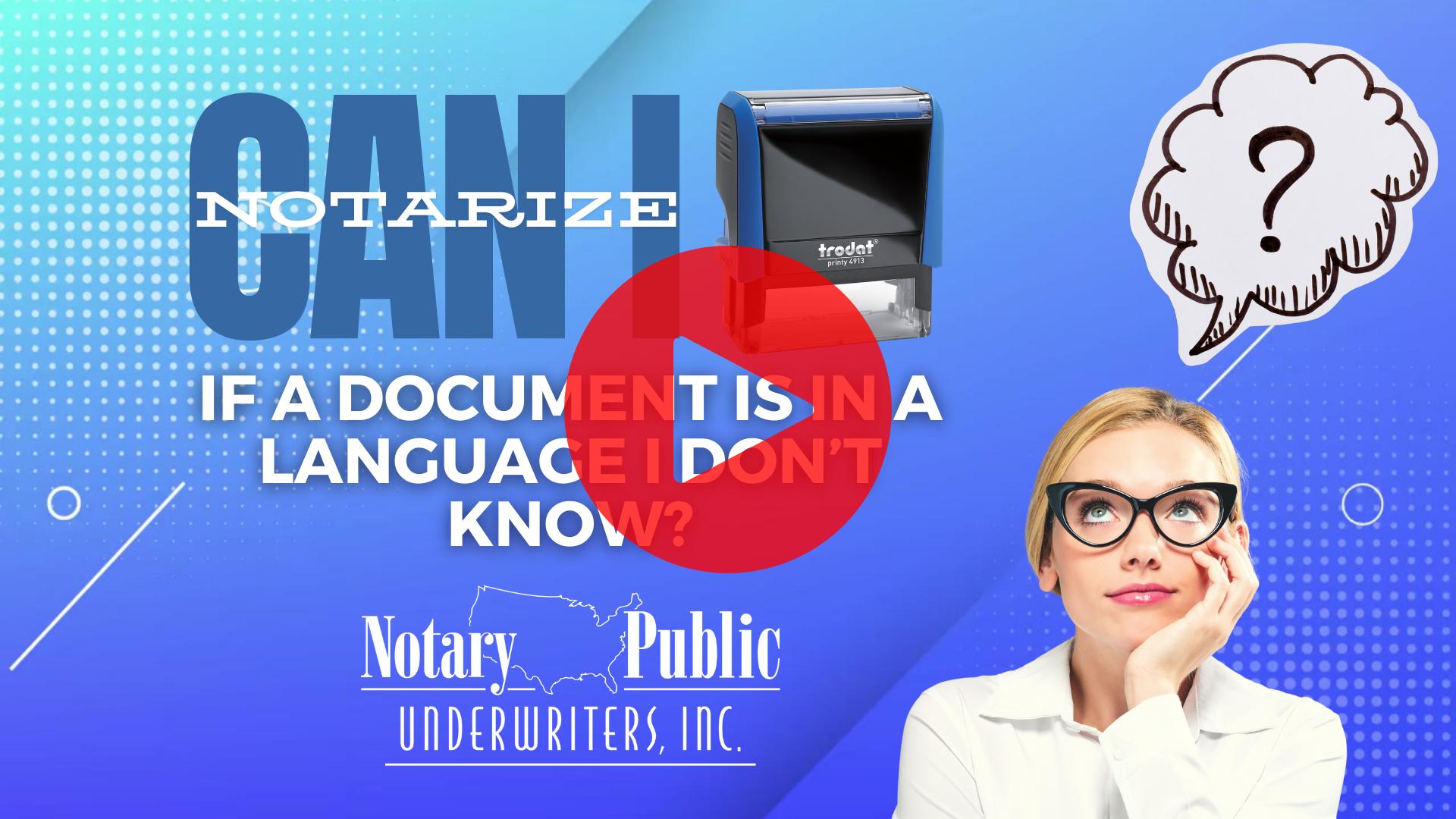Notary Public Underwriters Blog
Can I Notarize a Document in a Language I Don’t Understand?
- Details
- Published: August 19, 2024

Yes, notaries… it’s possible to safely perform a notarization involving a document written in an unfamiliar language, but you must carefully assess the circumstances and proceed with care.
Ask yourself:
Can I communicate in a shared language with my customer, whose signature I would notarize?
Every notarial act requires direct, verbal communication between the notary and the person for whom the act is being performed. A notary should never rely on a translator, because the notary would not know if the translation is truly accurate. Only direct verbal communication between the notary and the principal, in a shared language, will do.
Can I tell which notarial act must be performed?
The certificate wording indicates the signature notarial act to be performed. Can you read and understand the certificate language well enough to know which notarial act is desired, and is that act authorized in your state?
Can I tell if the certificate wording would cause me to certify facts or actions that my state notary laws do not authorize me to certify?
Sometimes, parties who create non-English language documents don’t realize the limited scope of a U.S. notary public’s powers. The notarial certificate language they have written may be fine outside the United States, but perhaps it indicates actions or certifications by the officiating notary that are not authorized here in the United States. To avoid performing and certifying to any actions the notary is not authorized to perform, a U.S. notary must be able to personally read and assess the language in which a notarial certificate is written.
Does my state allow me to modify or replace a notarial certificate?
In many U.S. states, yes—a notary may modify or replace a notarial certificate if the existing language does not substantially comply with the certificate language required by the notary’s state laws or rules. Some states, however, have different or additional requirements for this circumstance. For example:
- California requires certain certificate language to be exactly as provided in its statutes, which means the same exact words, and only in the English language. So, even a California notary who can read a non-English certificate must use an English-only certificate for their notarization.
- Florida prohibits a notary from changing anything in a written instrument after anyone has signed it. For example, the Florida notary may notice that a document’s notarial certificate wording for an acknowledgment does not sufficiently reflect Florida’s statutory format. But if the principal signer or anyone else has already signed the document, the Florida notary could not change anything, not even the notarial certificate, in that document… the notary would have to decline to notarize.
Check out our YouTube video:
Related Article(s)
Can I Notarize When the Person Has No ID?
What to Do When the Notary Certificate Is Missing?
The Loose Notary Certificate Guide: What Is It and How To Use It
How to Handle Out-Of-State Documents
What Should I Do When There's No Room for My Notary Stamp?
Can I Notarize a Document That Is Already Signed?
How to Assess Signer Awareness or Coercion
How to Notarize Signatures on Handwritten Documents
Signer Identification Challenges

